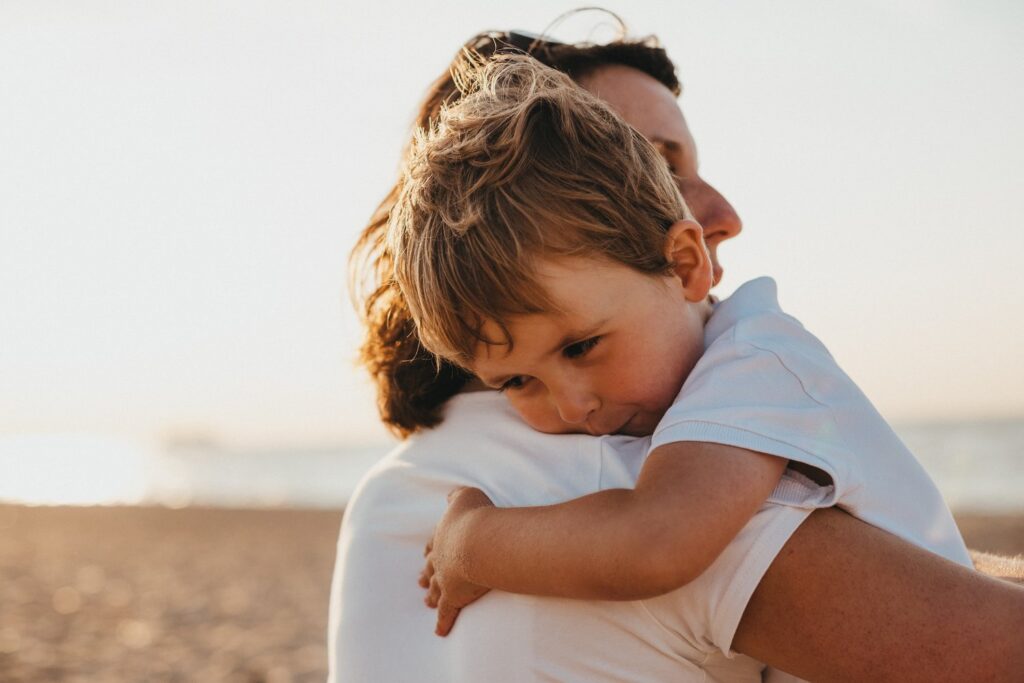Everyone expresses their feelings differently regardless of whether you’re an adult or a child. However, adults can talk more about their emotions and what they feel. Kids, they have several ways on how they convey what they are feeling.
Children at a young age do not always have ways to communicate. They have more complex ways of telling what they are feeling thus they have a hard time processing and expressing their emotions appropriately. However, as parents – you can always help your child learn to express themselves by letting them react in healthy ways.
They may cry, laugh, throw tantrums, scream, stomp their feet, and more. But how do you know what to do when your child is upset? How do you interpret their actions? There are a lot of factors that go into it.
That is why we’re here to talk about how children express their emotions through behavior. Children are complex little humans. That is why we can use this information to help them when they’re angry or sad, and how we can help prevent future emotional outbursts.
5 ways how to help children express their feelings and emotions:
Acceptance
For a child, emotions can be too overwhelming. That is why you must know how to accept your child’s feelings by understanding them. Accepting your child’s emotions can help them cooperate with you and make them feel better. It’s all about support and accepting everything your child’s feeling. In the end, it can encourage your child to express themselves openly in an appropriate way.

Empathic listening is vital as it helps children to see that you hear and understand them.
Listening
Empathic listening is vital as it helps children to see that you hear and understand them. Children have complex emotions and when they are too overwhelmed, they tend to burst out. Parents need to breathe and stay patient to prevent stressful events that kids may remember. Once children feel they’ve been heard and understood, they usually will let go and move on. It’s a fantastic thing to witness how they shift emotions once they have the chance to show you what they feel.

Identifying Emotions
Learning to deal with emotions is a crucial part of growing up. Whether your child is feeling happy, annoyed, or downright confused, there are many ways children express themselves. But how do you help them identify what they feel? Giving labels and naming feelings will allow children to develop an emotional vocabulary that they can talk about with you in the future.
Every child has different ways of expressing what they feel.
Giving Solutions
Some kids throw tantrums – throwing themselves downright and screaming. Some children have crying outbursts when they feel upset. But, how do you help them? Asking questions and allowing them to come up with a solution can be a help.
For example, when a child is having an outburst and they feel unheard, they usually scream as an indication that they are upset. Asking the child the reason why he/she is acting like that can help to identify the cause. And after that, give them options on what they can do to feel less upset and allow them to come up with solutions.

Praising Children
After all the overwhelming emotions that children feel, they can feel exhausted afterward. That is why it is important to reinforce them with lots of praise. Simple “Thank you for sharing what you feel” or “Good job telling your feelings with me” can encourage and show your child that it is okay to feel these emotions and it is okay to talk about what they are feeling.
While there is no magic solution how to figure out what your kids are feeling, there are some things parents can do to help them understand their kids’ emotions. Children may be complex and they are fun and colorful, but for them, it is easy to forget that they have feelings too. That is why as parents, it is your job to teach them that it’s okay to feel emotions and they can talk about it with you. That way – you can show that you’re an adult that cares.
Visit
or www.mentalhealthisgreatwealth.com
to keep up with what we are doing in the community.
“EVEN IF PEOPLE ARE STILL VERY YOUNG, THEY SHOULDN’T BE PREVENTED FROM SAYING WHAT THEY THINK.”
— ANNE FRANK
: emotions, how children express their emotions, mental health youth, children, mental health awareness, mental health, empathy, listening, the importance of emotions, dealing with children, handling kids, understanding kids, emotional intelligence, Persona Growth, Self-growth, Anxiety Awareness, Emotional Wellbeing, School Speaker, Plano School Speaker, Frisco School Speaker, Mental Health Awareness Speaker, One Belief, Mansfield Youth Motivational Speaker, Arlington School Speaker, Wellness Mental Health, Wellness, Mental Health Curriculum, top youth motivational speaker, youth motivational speaker, Youth public speaker, youth motivation, school speaker, public speaker, motivational speaker, your story, mental health advocate, youth mental health virtual speaker, positive affirmations, School speaker, positivity, encouragement, motivation, mental health speaker, social-emotional learning

View comments
+ Leave a comment